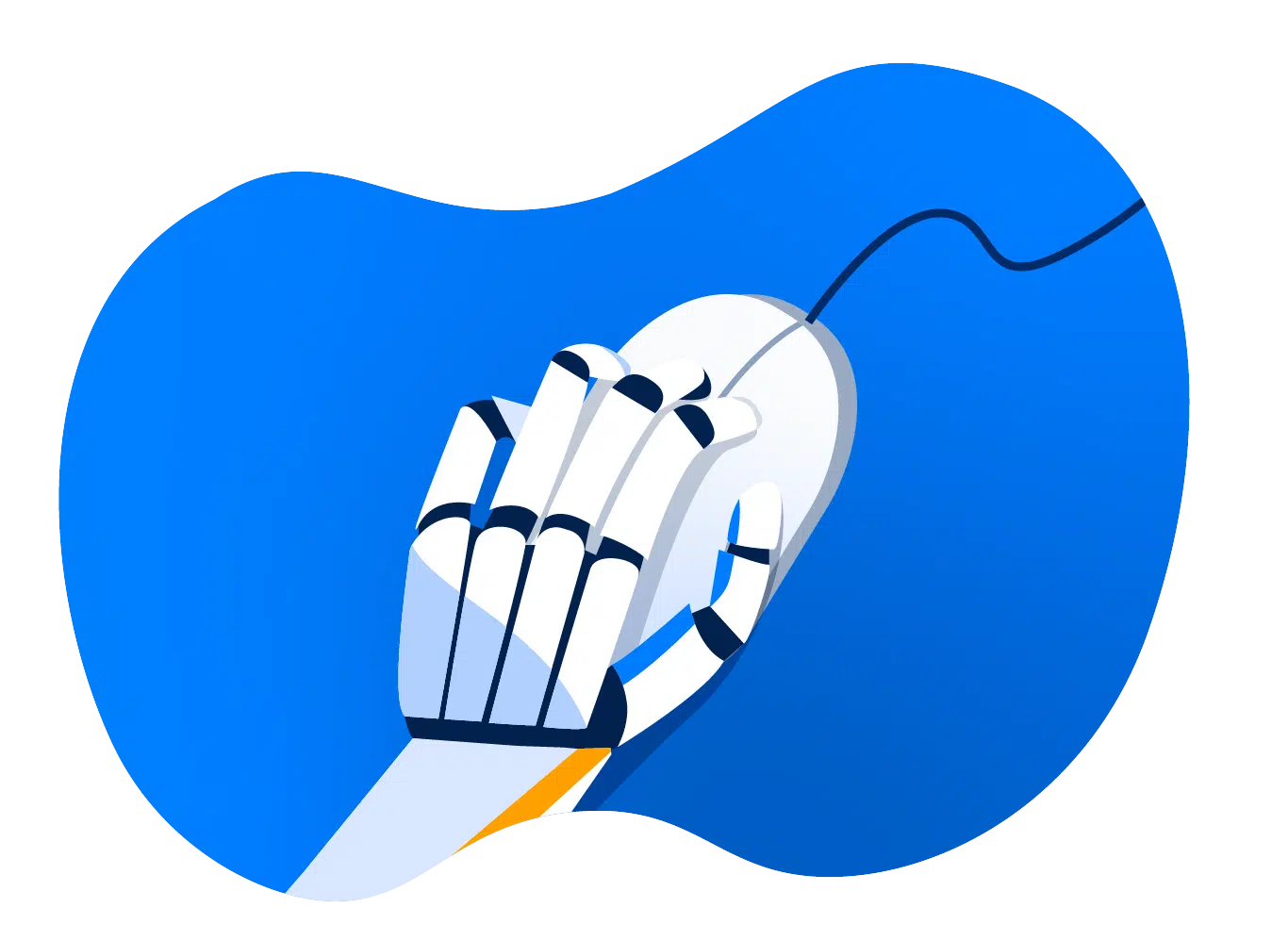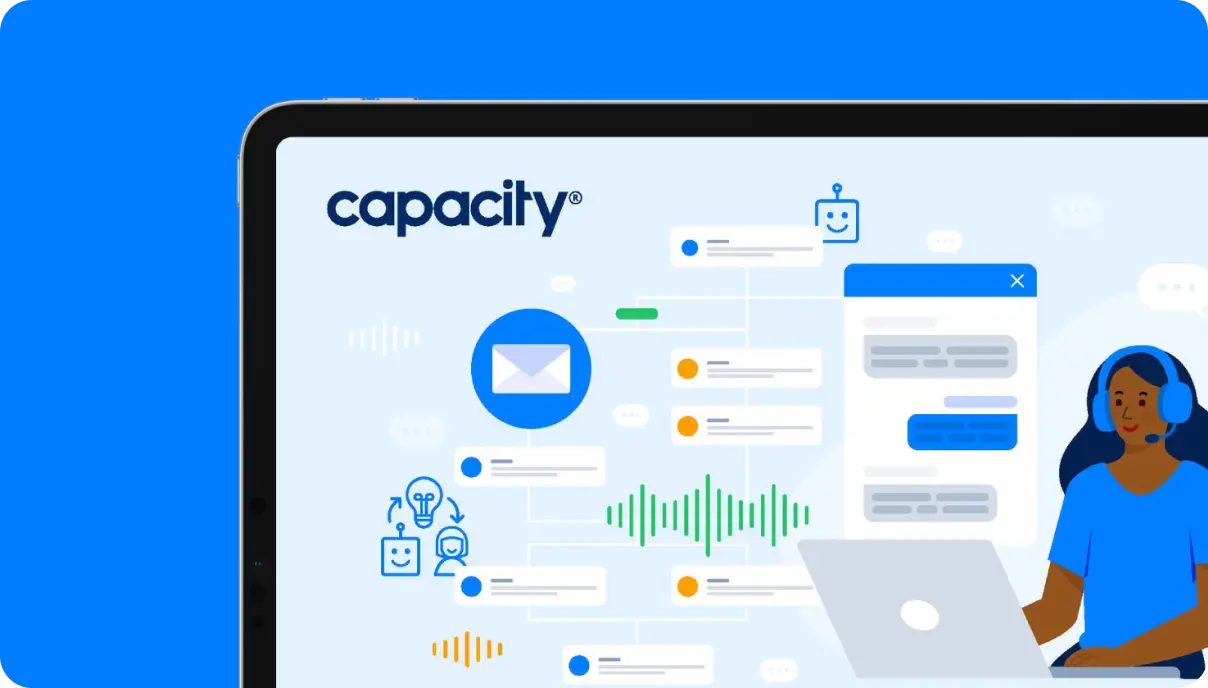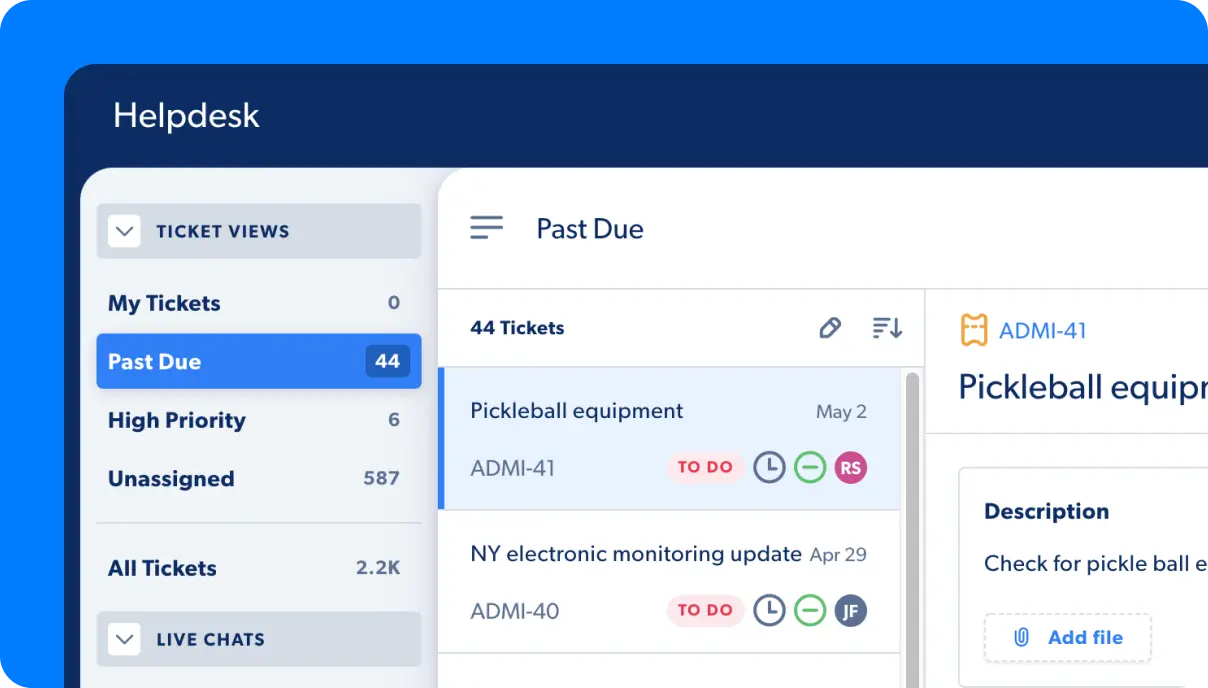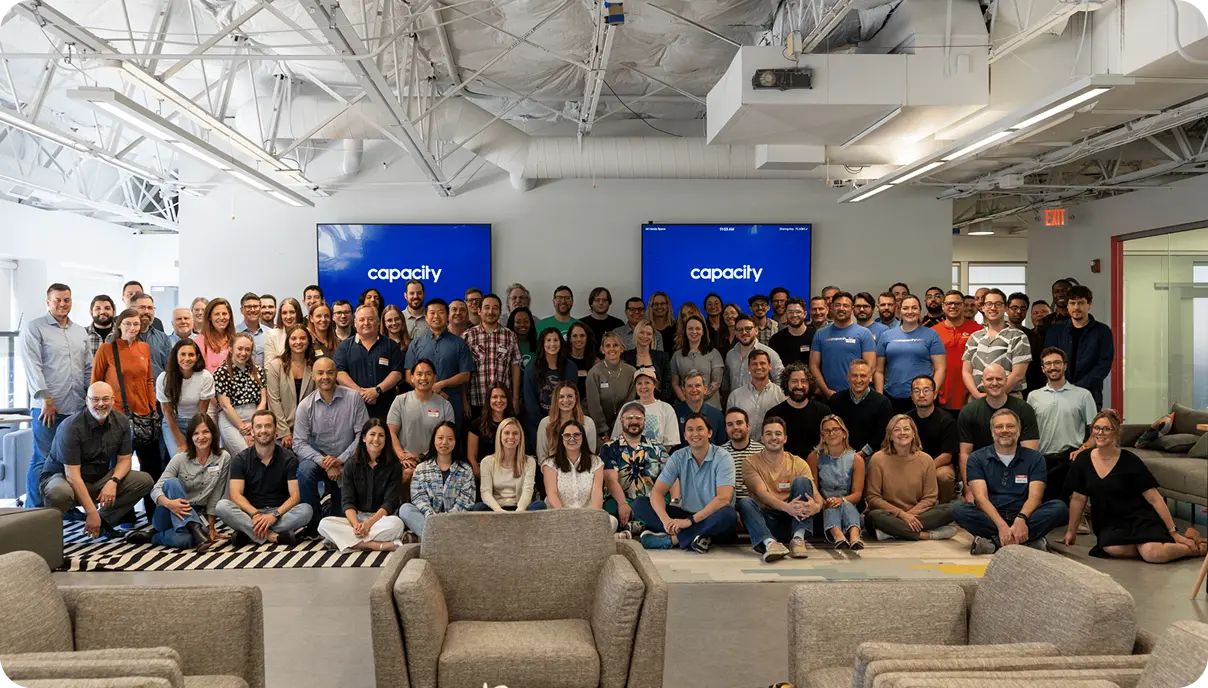The introduction of artificial intelligence (AI) in healthcare has opened up a new frontier of possibilities for healthcare professionals and patients alike. Pioneering AI models such as ChatGPT by OpenAI and Capacity are increasingly being used to drive efficient patient care, streamline administrative tasks, and provide valuable insights into complex medical data.
However, as we navigate these advancements, there is a crucial need to remain vigilant and compliant with health information privacy standards, specifically the Health Insurance Portability and Accountability Act (HIPAA) in the United States.
The intersection of AI and HIPAA compliance in healthcare presents unique challenges and opportunities. As we incorporate sophisticated AI systems into our healthcare services, the protection and confidential handling of sensitive patient data should be at the forefront. Using AI, while adhering to HIPAA regulations involves a careful balancing act. We need to use the potential of AI to improve patient outcomes and operational efficiency while also ensuring that these technologies are implemented in a manner that safeguards patient data and respects privacy norms.
Here, we will explore the numerous ways in which healthcare professionals can integrate AI in their work while diligently remaining HIPAA compliant. With careful planning, strong data security measures, and stringent adherence to HIPAA guidelines, AI can truly transform the healthcare system, bringing about enhanced patient care and streamlined medical processes.
The importance of HIPAA and compliance in healthcare
What is the health insurance portability and accountability act (HIPAA)?
The Health Insurance Portability and Accountability Act (HIPAA) is a U.S. law enacted in 1996 to safeguard the privacy and security of individuals’ health information. The law’s two main components are the Privacy Rule, which protects identifiable health data, known as Protected Health Information (PHI), and the Security Rule, ensuring the protection of electronically stored PHI. Essentially, HIPAA sets standards for handling, storing, and transmitting sensitive health data, providing a framework for healthcare entities to securely manage patient information.
The unique challenges of introducing new tech to healthcare
Introducing new AI technology, like ChatGPT, into the healthcare sector brings about unique challenges not necessarily encountered in other industries. Data privacy is a significant hurdle. The healthcare industry handles an enormous amount of sensitive patient data that is heavily regulated by laws such as the Health Insurance Portability and Accountability Act (HIPAA) in the U.S. In 2022, an average of 1.94 healthcare data breaches of 500 or more records were reported daily. With the introduction of AI systems, it’s essential to ensure the secure handling and storage of this data to protect patient privacy.
Additionally, the lack of standardization across healthcare data is a complex issue when integrating AI. Healthcare data comes in many formats, from structured lab results to unstructured clinical notes. Building AI systems that can effectively learn from and operate on such a diverse range of data can feel like an uphill battle.
Lastly, the challenge of user adoption cannot be ignored. The healthcare sector has been historically slow to adopt new technologies due in part to a lack of technological literacy among some practitioners. Overcoming this barrier will require comprehensive training programs and a user-friendly design to encourage widespread acceptance and use of the new AI technology.
The potential benefits of AI like ChatGPT in transforming the healthcare industry
The integration of Artificial Intelligence (AI), such as ChatGPT, into the healthcare system holds the potential to profoundly transform patient care and operational efficiency. From a patient perspective, AI can enable more personalized and timely care, improving diagnostic accuracy, predicting health outcomes, and tailoring treatment plans to individual patient needs. Financially, AI applications can significantly reduce costs by automating administrative tasks, optimizing resource allocation, and minimizing expensive medical errors. The NIH reports that it’s estimated that AI applications can cut annual US healthcare costs by USD 150 billion in 2026.
Moreover, AI can revolutionize the diagnostic process, enabling early detection of diseases through pattern recognition in medical images and lab results. Below are some of the many ways AI can usher in a new era of healthcare.
Improved diagnosis and treatment
AI models, like ChatGPT, can process vast amounts of health data to support healthcare professionals in diagnosing diseases and determining the most effective treatments. They can identify patterns in data that might be missed by humans, potentially leading to earlier diagnosis and improved patient outcomes.
Enhanced efficiency and productivity
AI can automate repetitive administrative tasks, freeing healthcare professionals to focus more on patient care. Furthermore, AI-powered chatbots can handle routine patient inquiries, improving service quality and efficiency.
Predictive analytics and early intervention
AI can analyze numerous health parameters and historical data to predict health risks and suggest early interventions. This predictive capability can revolutionize preventative healthcare and drastically improve patient prognosis.
Precision medicine and personalized care
By analyzing genetic information and other personal health data, AI can facilitate precision medicine, tailoring treatments to individual patients’ needs and conditions. This personalized approach could enhance treatment effectiveness and patient satisfaction.
Improved patient engagement and education
By using AI-powered chatbots and virtual assistants, patients can receive personalized, timely health advice and reminders, fostering a more active role in their health management. Furthermore, AI can democratize health education by offering tailored learning resources, simplifying complex medical jargon, and thereby empowering patients to make more informed decisions about their health.
7 ways to bring AI to the healthcare industry (while staying compliant)

Method 1: Conducting a thorough risk assessment
You want to start by identifying potential risks and evaluating the type of AI technology used, the patient data involved, its application context, and the potential for biases or inaccuracies. Analyze and prioritize these risks according to their potential impact and likelihood, considering both the patient safety and data security aspects.
Method 2: Implementing strong data encryption and security measures
Ensuring data is securely stored and transmitted is critical in preventing unauthorized access to patient health information. Strong encryption methods and other security measures are key.
Method 3: Ensuring data anonymization and de-Identification techniques
Using data anonymization and de-identification techniques ensures that health data used by AI systems can’t be traced back to specific patients, preserving their privacy while still allowing the data’s beneficial use.
Method 4: Establishing strict access controls and user authentication protocols
Limiting who can access patient data and requiring strong user authentication protocols can greatly reduce the risk of unauthorized access to patient data.
Method 5: Implementing comprehensive data governance and auditing processes
Data governance practices ensure that patient data is managed responsibly and that there’s accountability for any misuse. Regular auditing can verify that these practices are being followed and that the system is HIPAA-compliant.
Method 6: Incorporating transparency and explainability in AI systems
AI systems, like ChatGPT, should be transparent and explainable, enabling healthcare professionals and patients to understand how the AI made its predictions or recommendations. This can build trust and ensure the ethical use of AI.
Method 7: Maintaining up-to-date knowledge of HIPAA regulations and guidelines
It’s important to continuously monitor updates from official sources like the Department of Health and Human Services, as they regularly publish revisions and clarifications to HIPAA rules which are critical for maintaining compliance. Training and workshops for your technical and healthcare teams should be incorporated routinely with a focus on changes in HIPAA regulations and their implications on AI applications in healthcare.
Integrating AI, like ChatGPT, into the healthcare industry holds immense potential for improving patient care and operational efficiency. However, it must be done in a way that respects patient privacy and complies with regulations like HIPAA. By following the methods outlined above, healthcare professionals and IT leaders can harness the power of AI while staying fully compliant. This balance is the key to driving innovation in healthcare while upholding the industry’s ethical and legal obligations.

Automate Your Work
Capacity’s enterprise AI chatbot can help:
- Answer FAQs anytime, anywhere
- Find relevant documents within seconds
- Give surveys and collect feedback













































